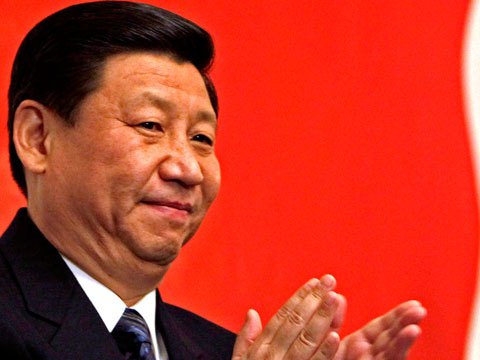
The Chinese Communist Party is cracking down on "erroneous" remarks about China's history of nihilism by setting up a hotline for citizens to report through, ahead of the CCP's upcoming anniversary.
The CCP through its Cyberspace Administration has set up a hotline for citizens to report what it calls "false" statements about its history of nihilism. This move was executed in preparation for the party's 100th founding anniversary. The CCP under Xi Jinping has also provided a guide on the "correct" accounts that make up its troubled history.
According to Radio Free Asia, the Cyberspace Administration is looking to revise history to remove its atrocities through a newly published guide titled "A Brief History of the Communist Party of China." This is so that people will have the same talking points about China's communist history.
Through its official Weibo account, the Cyberspace Administration announced on April 9 that citizens must use the hotline ""to report erroneous online remarks relating to historical nihilism" of the Chinese Communist Party.
The handbook on the history of the CCP under Xi Jinping features a revised history that deemphasizes the late supreme leader Deng Xiaoping's diplomatic approach to the international sanctions received by China after the 1989 Tiananmen massacre. Instead, the handbook highlighted his comments to former U.S. president Richard Nixon back in November 2019, during which Deng declared that the communist state will never "beg" for any sanctions to be lifted.
Such sanctions refer to those slapped on China after the country's People's Liberation Army (PLA) attacked unarmed civilians with firearms and tanks in a campaign that ended pro-democracy protests held at Tiananmen Square on June 4, 1989.
Also missing from the handbook's latest edition is an 11,000-word chapter that discussed the Cultural Revolution that occurred between 1966 and 1976, during which political turmoil reached new heights. Replacing this chapter was a one-pager titled "Twists and Turns on the Road to Socialist Reconstruction."
Compared to the previous version that was published under former president Hu Jintao in 2010 and had criticized the supreme leader Mao Zedong for starting the Cultural Revolution, Xi Jinping's version instead praised Mao's leadership, saying that he bravely led an "an incessant war on corruption, special privileges and bureaucratic mentality within party ranks."
According to The Guardian, the CCP's Cyberspace Administration hopes to quell those who "have been spreading historical nihilistic misrepresentations online, maliciously distorting, denigrating and negating the history of the party." The term "historic nihilism" is what Xi's government uses to refer to the public's doubtful and sceptical response to the way the CCP portrays its history. It is unclear what repercussions await those who are found guilty of spreading what the CCP claims are "incorrect" information about the party's history.
Just last week, CCP authorities arrested a 19 year-old man in the eastern province of Jiangsu, where he was accused of posting "insulting" comments online about the Japanese occupation at Nanjing in 1937.
The CCP is also cracking down on Chinese social media sites that do not censor critical content from its users, punishing them with temporary suspension and other fines.












